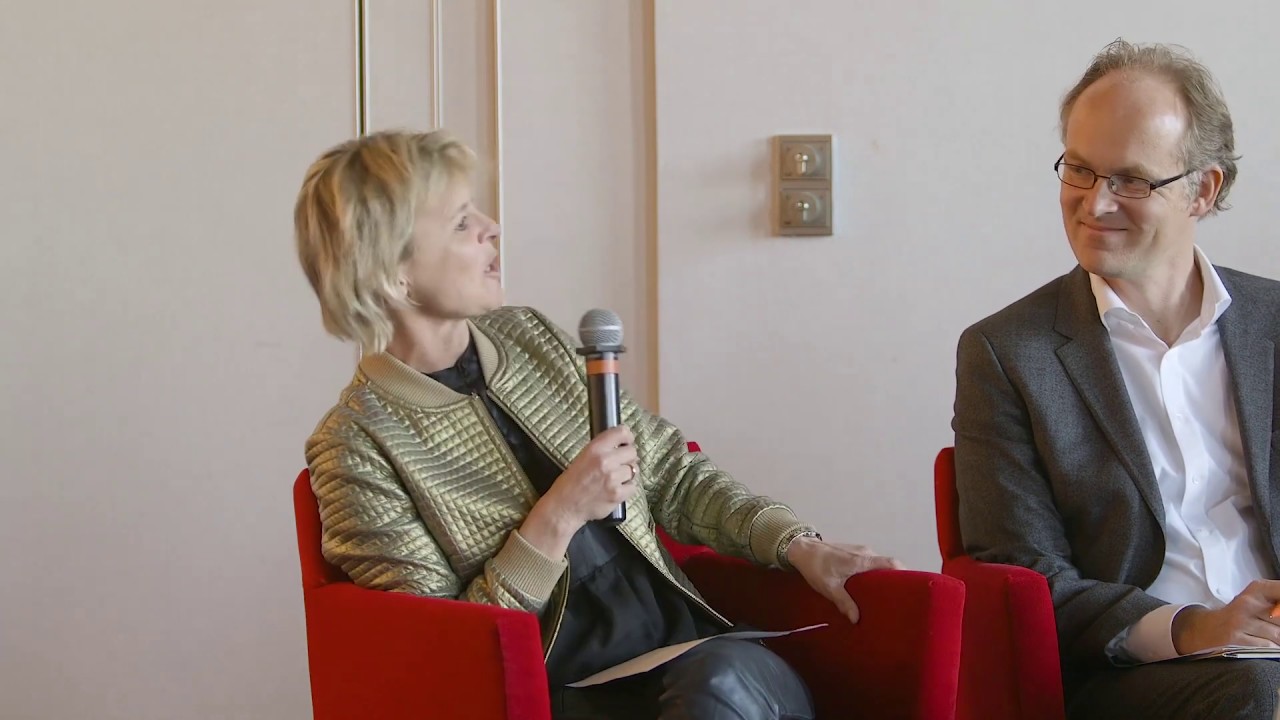New Multilateralism in Global Economy
On February 26th, 2019. ECFR Warsaw Office, with support of the Embassy of Japan to Republic to Poland, organized an all-day New Multilateralism in Global Economy conference focused on European-Japanese relations in the framework on new multilateralism in such fields as trade relations, development aid to Africa and the Fourth Industrial Revolution. We have invited outstanding experts from Poland, Japan and Europe to participate in the seminars. Due to the location of the event, the majority of invited guests represented Polish institutions (including the most important non-governmental organizations and the state administration). The conference consisted of three experts sessions by a public debate on the future of multilateralism.
Over 60 participants participated in the event, with Martin Ehl, Sebastian Dullien, Shujiro Urata, Krzysztof Trepczyński, Shoshana Fine, Akira W. Jingushi, Anita Käppeli, Joanna Stachyra, Krzysztof Izdebski, Mario Mariniello, Ulrike Esther Franke, Annegret Bendiek, Lykke Friis, Bogdan Góralczyk and Maaike Okano-Heijmans in speaking roles.
This conference was a third in a series of ECFR Warsaw conferences on European-Japan cooperation on various aspects of liberal international order. The format used and the selection of participants allowed an in-depth discussion of European and Japanese perceptions, interests and strategies in each of three main areas covered. Presented below are the main findings of the conference:
- The EU-Japan Economic Partnership has established the world’s largest trading block, amounting to 40% of global GDP. While it’s impact on trade and GDP growth is expected te be relatively limited (estimates average at about 0,1% GDP increase for the European Union, although there are arguments that the methodology used is too conservative to capture projected impact in full), it is expected to be of significant importance for investment and politically. Japanese companies investing in Europe are in particular interested in improvements that this agreement provides.
- Changes to international trade regime are needed to address the growing role of service trade, including digital services, and the interdependence between trade and investments. With the WTO unable to adapt to the new situations, new free trade agreements are filling the gap. EU’s agreements with Korea and Japan are the best example several other FTAs are being negotiated now.
- For Japan, the EU-Japan Economic Partnership is part of a broader economic strategy and an important tool for opening up Japanese economy and society to investments, immigrants and tourist, all necessary to maintain productivity and economic growth.
- The EU and Japan should build coalitions, including with developing countries, on trade in order to avoid confrontation and trade wars. Dialogue with US and China is important to keep them engaged even if prospects of WTO reform are still distant.
- The importance of Africa for preserving the liberal international order is increasing, given its growing population, votes in international organisations and political changes in African countries, with hopes for broader democratisation. EU and Japan engagement in Africa can help its countries deal with the challenges they face and the two actors are natural partners in this domain.
- A multilateral approach to developmental aid, involving the African Union, World Bank and UNDP, would be preferable, especially with regard to countries that have mixed, semiauthoritarian regimes. This approach also needs to go beyond mere economics.
- China should not be seen as an adversary in Africa, even as its developmental aid can be a mixed blessing to its recipients. Japan and the EU need to show why Chinese approach is not sustainable in the long-term and promote their own approach as an alternative.
- Developmental aid is both a way to help poorer countries and a tool of diplomacy. More coherence is needed to develop a policy that benefits both aid recipients and aid donors: it can help plug developing countries into the global economic system and is an investment in global public goods.
- An effective development aid policy would need to: focus on causes with an eye on long-term contributions and capacity building; be coherent, with sensible financial and legal framework, including channels of legal migration; encompass humanitarian aid; and be honest about what works and what doesn’t
- Polish development aid in Africa is hampered by limited funding and scant diplomatic network, but a lot of Polish aid goes through multilateral agreements. Poland is now rethinking its tools in the domain, including its relationship with aid NGOs, work with local communities and the possibility of a reform at UN level.
- Artificial intelligence is a game-changer, but a appropriate response is needed to shape its impact on societies and economies.
- The EU is slow on adoption of AI – as well as cloud and digital services in general – and is lagging behind the US and China on AI financing. It fares only slightly better on the quality research, where it is on par with the US, but even there China is a serious competitor. This can be explained partly due to the difference in size of markets, infrastructure, private and public capital flows, but attitudes towards personal data collection and analysis is also an important factor.
- European digital strategy should foster AI by creating a framework that identifies and addresses its social risks, while setting global quality standards. This framework would be based upon empowering individuals, e.g. by granting them control over their personal data, and promoting solutions based on augmentation, rather than substitution, of labour.
- At the same time, the European Commission sees competitive and functioning markets as crucial both to both the growth of AI and maintaining the balance between producers and consumers. To achieve this, a rethinking of competition instruments is needed, in order to prevent the rise of monopolies, as is the continued development of Digital Single Market.
- The focus on avoiding digital monopolies in the EU was challenged by one of the participants, who pointed out that American corporations have grown big enough to consistently buy up emerging European technology firms. In this view, formation of European technology giants would help arrest this dynamic, even if at the cost of increased market concentration.
- AI strategies of EU member-states are mostly defensive and not focused on opportunities AI brings. Only the French strategy is more forward-looking, but still quite cautious. There are reasons for caution, though. European member-states focus on ethics of AI, including transparency, trust and security, but it is not sure if current strategies guarantee that these technologies will not be misused. Unlike other actors, the EU and its member-states do not consider AI as an element of its geopolitical power and are reluctant to consider its military applications.
- Despite calls for EU unity on AI, strategies of its member states are quite nationalistic, work needs to be done to increase cohesion on this issue.
- Both German and France either strongly hint at or explicitly mention cooperation with Japan on AI. There is significant room for cooperation between Europe and Japan: both actors want to shape rules with a focus on ethics and privacy, and they can strengthen their economic and AI research this way.
- An AI assisted analysis of the future of AI global governance mapped out four scenarios along two axes: technopolitical integration/fragmentation and resilience/vulnerability. One of these – a scenario where technological, economic and political integration is met with increased resilience – leads to more coordination and prosperity, but the other three lead to negative outcomes: growth of global digital economy at the expense of mounting social problems and cyberthreats (integration+vulnerability); a fragmentation of digital economy negatively impacting other sectors and conflicts between isolated “islands” within cyberspace (fragmentation+vulnerability); or an “unsplendid digital isolation” breeding technical fragmentation, with main powers (USA, China, EU) building digital walls. Of these, the fourth scenario looks most likely.
- In order to avoid the negative scenarios described above, multilateral cooperation is necessary. In this context, EU and Japan can become strong partners in digital diplomacy, using their free trade agreement to apply the strongest security systems worldwide and build upon EU’s work as norm-shaper in the digital domain.
- AI is a crucial component of Japanese vision for society, being both a big opportunity and a challenge. The Society 5.0 vision is built upon the concept of human centred society and the ideas of managing social problems better using technology and integrating cyber- and physical space. Japan is interested in working with other actors in developing and implementing these ideas.
- There was an agreement among discussants that the EU should not involve itself in the race for leadership on AI in the same manner as the US and China do, but rather adopt a society-focused approach and seek to shape global norms, including on privacy and data protection, instead.




